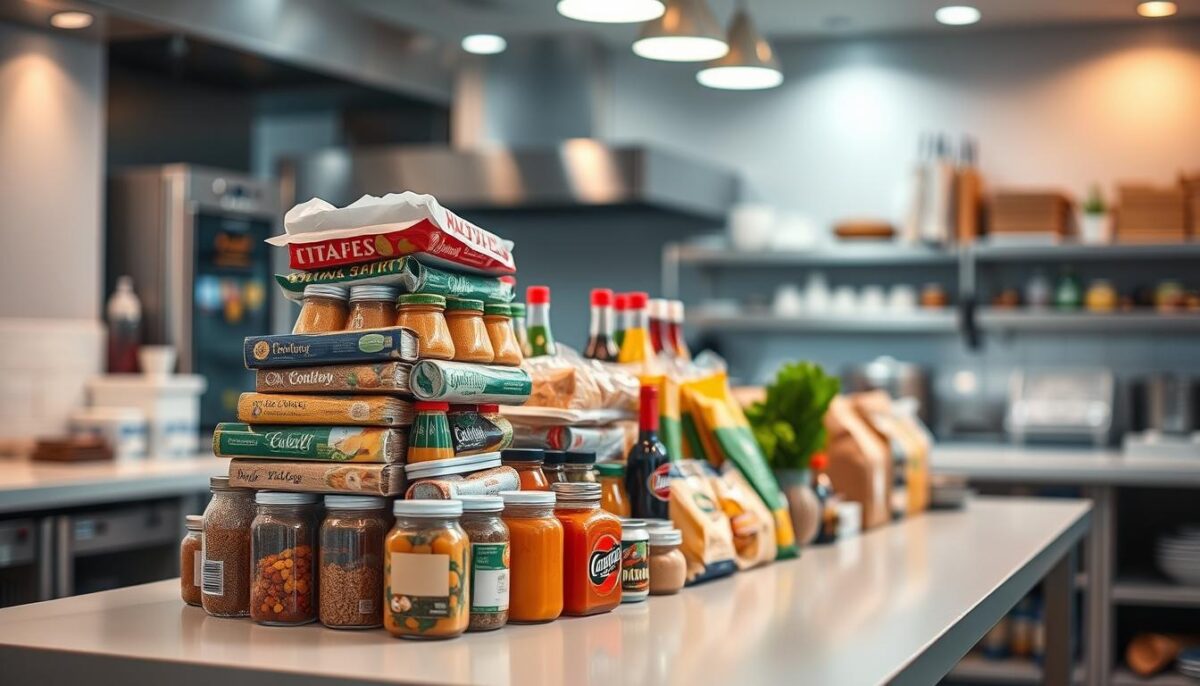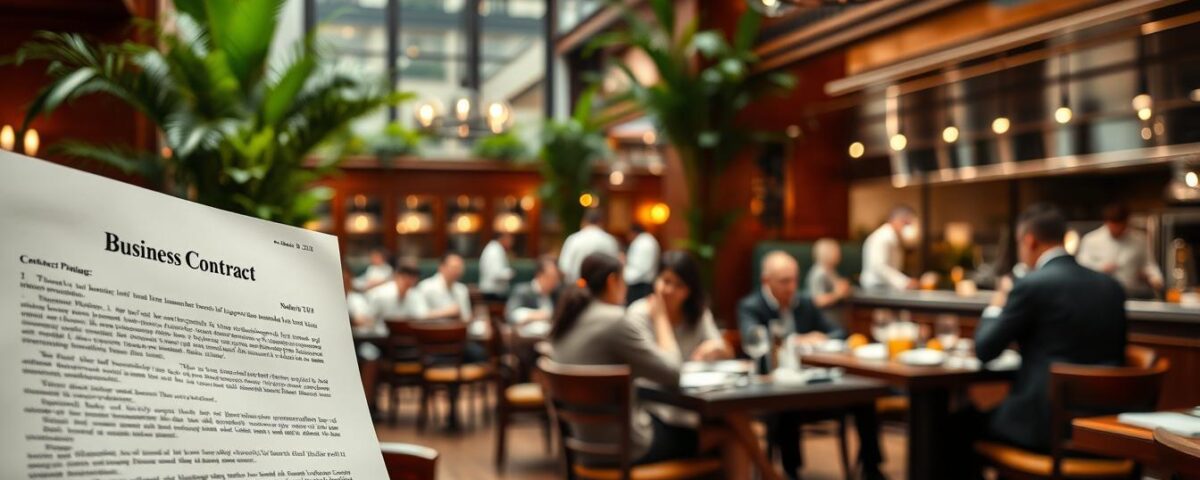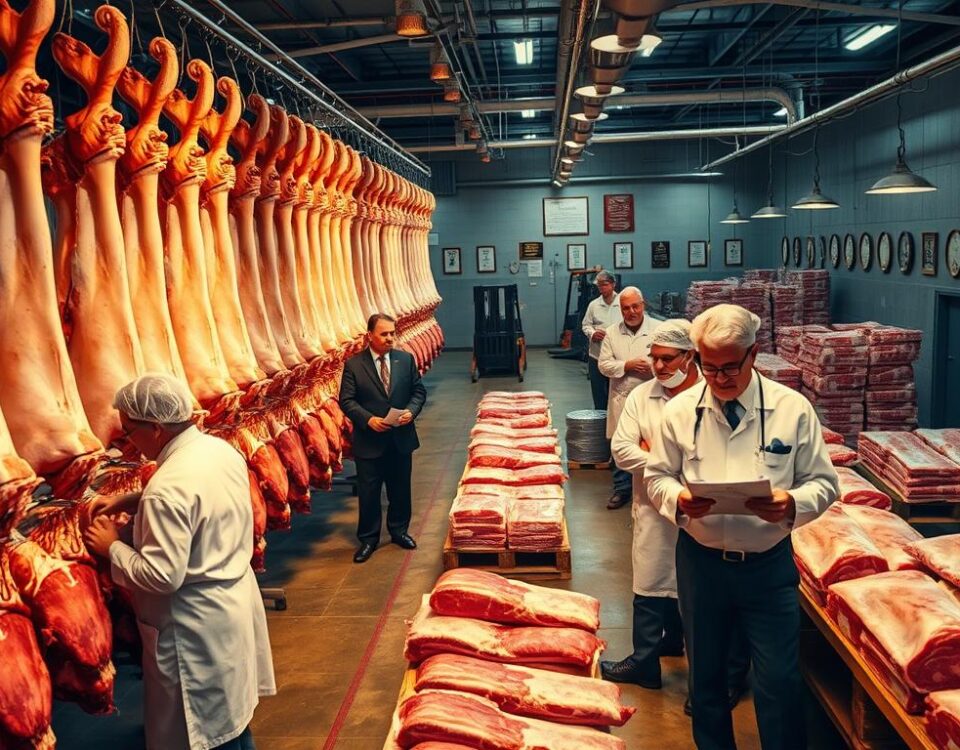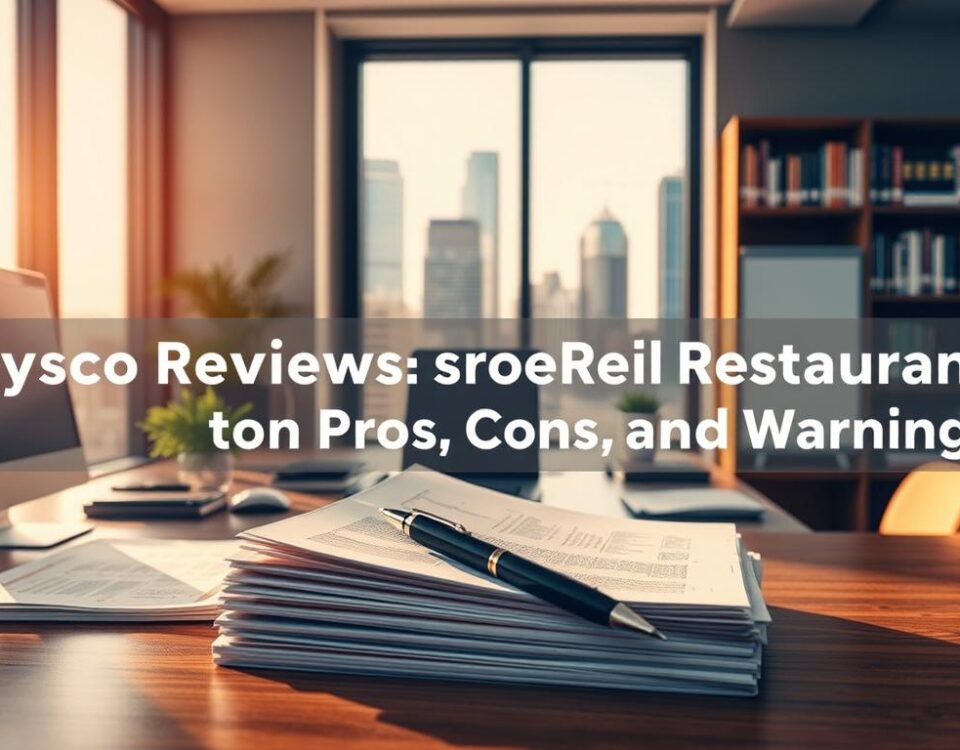
10 Best Wholesale Food Suppliers for Restaurants
July 18, 2025
4 Insurance Traps That Cost Restaurant Owners Thousands
July 19, 2025As a restaurant owner, I’ve seen firsthand how unexpected events can disrupt business and threaten financial stability. A recent study revealed that nearly 60% of restaurants face significant financial strain due to unforeseen circumstances, such as kitchen fires or customer injuries. This staggering statistic highlights the critical need for comprehensive restaurant insurance that goes beyond standard policies.
Many restaurant owners assume their standard business insurance covers all potential risks, but the reality is that hidden vulnerabilities can leave their business exposed. By understanding the specific risks associated with the restaurant industry, owners can better protect their investment and ensure continuity.
What are the hidden risks that could devastate a restaurant’s finances, and how can comprehensive insurance coverage mitigate these threats?
Key Takeaways
- Understanding the limitations of standard business insurance policies for restaurants.
- Identifying six critical hidden risks specific to the restaurant industry.
- Learning how comprehensive restaurant insurance differs from general business policies.
- Evaluating current insurance coverage to identify potential gaps.
- Protecting restaurant investments through specialized insurance coverage.
Understanding the Unique Risks in the Restaurant Industry
As a restaurateur, you’re not just serving meals, you’re managing a multitude of risks daily. The restaurant industry is known for its fast-paced environment, where factors like customer satisfaction, food quality, and employee management come into play. With the right insurance and risk management plan, you can protect your business, employees, and customers from potential risks.
Why Traditional Business Insurance Isn’t Enough
Traditional business insurance policies often fall short in addressing the unique challenges faced by restaurants. For instance, a standard policy might not cover food-related liabilities or the loss of business due to equipment failure. Restaurants need specialized insurance coverage that goes beyond basic business insurance to protect against these specific risks.
| Risk Factor | Traditional Business Insurance | Specialized Restaurant Insurance |
|---|---|---|
| Food Safety Concerns | Limited Coverage | Comprehensive Coverage |
| Equipment Failure | Basic Coverage | Extended Coverage |
| Customer Liability | Standard Liability | Enhanced Liability Protection |
The Cost of Being Underinsured as a Restaurant Owner
Being underinsured can have severe financial consequences for restaurant owners. Without adequate insurance coverage, a single incident can lead to significant financial losses, legal expenses, and even business interruption. Understanding the true cost of being underinsured is crucial for making informed decisions about your restaurant’s insurance needs.
For example, if a restaurant is not covered for food contamination, a single incident could result in thousands of dollars in losses. Similarly, without proper business interruption insurance, a restaurant may struggle to recover from an unexpected shutdown.
The Foundation: Essential Restaurant Insurance Coverage Risks
Building a robust risk management strategy for my restaurant requires a solid foundation of insurance coverage. This foundation is composed of several key insurance types that work together to protect my business from various risks.
General Liability and Property Insurance Basics
General liability insurance is essential for protecting my restaurant against claims of bodily injury or property damage from customers or third parties. For instance, if a customer slips and falls in my restaurant, general liability insurance can help cover the costs associated with the claim. On the other hand, commercial property insurance safeguards my physical assets, including kitchen equipment and dining room furnishings, against damage from events like fire, theft, and natural disasters.
- General liability insurance covers third-party injury or property damage claims.
- Commercial property insurance protects against damage to my restaurant’s physical assets.

Workers’ Compensation Requirements for Restaurants
In most states, businesses with a certain number of employees are required to carry workers’ compensation insurance. This type of insurance covers medical bills and lost wages for employees who are injured or become ill on the job. The restaurant industry has higher-than-average workplace injury rates, making workers’ compensation insurance particularly important for protecting both my business and my staff.
- Workers’ compensation insurance is mandatory for businesses with employees in most states.
- This insurance covers medical bills and lost wages for work-related injuries or illnesses.
By combining general liability, commercial property, and workers’ compensation insurance, I can create a comprehensive safety net for my restaurant, protecting it from common risks and ensuring its financial stability.
Hidden Risk #1: Cyber Liability and Data Breaches
While traditional risks are well-understood, cyber liability represents a hidden threat to restaurants that handle customer data. As a restaurant owner, you may not realize that standard insurance policies typically exclude coverage for data breaches and cyber attacks, leaving a significant vulnerability.
Cyber insurance is crucial for any business handling customer data, covering losses caused by security failures or data breaches. It includes expenses like credit monitoring, public relations, legal fees, and regulatory fines. With the rise of digital payment systems and reservation platforms, the risk of cyber attacks has increased, making cyber insurance a vital component of a comprehensive restaurant insurance strategy.
Digital Payment Vulnerabilities
Modern restaurants face specific digital payment vulnerabilities, including POS system breaches and online ordering platform hacks. These systems store sensitive customer data, making them prime targets for cybercriminals. Ensuring the security of these systems is paramount to protecting customer data and maintaining trust.
To mitigate these risks, restaurant owners should implement robust security measures, such as regular software updates and employee training on cybersecurity best practices. By taking proactive steps, restaurants can reduce their exposure to cyber threats.
Customer Data Protection Requirements
Restaurants must comply with legal requirements for customer data protection, including PCI DSS standards and state data breach notification laws. Failure to comply can result in significant fines and reputational damage. It’s essential to understand these requirements and implement necessary measures to ensure compliance.
By prioritizing customer data protection and investing in cyber insurance, restaurant owners can safeguard their business against the growing threat of cyber attacks. This not only protects customer data but also helps maintain customer trust and loyalty.
Hidden Risk #2: Food Contamination and Spoilage
My experience as a restaurant owner has taught me that food contamination and spoilage are hidden risks that can be devastating. Food spoilage insurance can cover the costs associated with restocking lost inventory, but it’s essential to understand the extent of the risks involved.
There are numerous incidents that can contaminate or spoil food in kitchens, from equipment failure to power outages. For instance, a power outage just after closing time can go undiscovered for 36 hours, causing significant losses.
Beyond Basic Food Poisoning Coverage
Standard food poisoning coverage often falls short when dealing with widespread contamination issues or food recalls that affect the entire inventory. Specialized food contamination insurance can provide critical protection against these potentially devastating scenarios.
For example, if a shipment of lettuce falls under a listeria recall, it can spread bacteria to the rest of the produce, leading to significant financial losses. Understanding the difference between spoilage coverage and equipment breakdown coverage is essential for comprehensive protection.
Equipment Failure and Power Outage Protection
Equipment failure presents a significant risk to restaurants, as commercial refrigeration breakdowns can lead to substantial food spoilage losses. Equipment breakdown coverage, also called business income insurance, protects businesses against financial losses due to unexpected interruptions.
| Risk | Consequence | Insurance Coverage |
|---|---|---|
| Equipment Failure | Food Spoilage | Equipment Breakdown Coverage |
| Power Outage | Business Interruption | Business Income Insurance |
| Food Contamination | Liability Claims | Food Contamination Insurance |

Hidden Risk #3: Employment Practices Liability
Employment practices liability is a significant hidden risk that restaurants often overlook, despite its potential to cause substantial financial damage. Restaurants are notorious for having high employee turnover rates, which increases their vulnerability to employment-related claims.
The high-pressure environment of restaurant work, combined with close quarters and hierarchical structures, can create conditions that lead to employment claims. These claims can include allegations of discrimination, harassment, or wrongful termination, which can be costly to defend against, even if they are unfounded.
Protecting Against Discrimination and Harassment Claims
Employment practices liability insurance (EPLI) provides essential protection against the substantial legal costs associated with defending against employee claims. This type of insurance covers legal defense costs, settlements, and judgments, ensuring that your business is protected in case of employment-related lawsuits.
Wrongful Termination Coverage in High-Turnover Environments
The high-turnover nature of restaurant employment creates additional vulnerability to wrongful termination claims. EPLI coverage is particularly important in these situations, as it helps protect your business from the financial implications of such claims. By having the right insurance in place, you can mitigate the risks associated with employment practices liability and ensure the continuity of your operations.
Hidden Risk #4: Liquor Liability Extensions
Restaurants that serve alcohol face unique liability risks that can be mitigated with comprehensive liquor liability insurance coverage. This type of insurance is crucial for protecting against legal claims and financial losses arising from alcohol-related incidents.
Coverage Gaps in Standard Liquor Liability Policies
While most restaurant owners understand the basics of liquor liability, many are unaware of significant coverage gaps in standard policies. For instance, standard liquor liability policies may not cover incidents that occur after patrons leave the premises, creating a dangerous liability gap for restaurant owners.
Understanding the “last to serve” liability concept is crucial, as a restaurant could be held responsible for incidents involving intoxicated patrons even if they consumed alcohol at multiple establishments. This highlights the need for liquor liability extensions to ensure comprehensive coverage.

Special Event and Off-Premises Considerations
Special events like private parties, catering, or promotional events may require additional or specialized liquor liability extensions. Restaurants must consider these scenarios to ensure they are adequately protected against potential claims.
| Event Type | Liquor Liability Consideration | Recommended Coverage |
|---|---|---|
| Private Parties | Alcohol service to guests | Special Event Liquor Liability |
| Catering Events | Off-premises alcohol service | Off-Premises Liquor Liability Extension |
| Promotional Events | Increased alcohol consumption risk | Enhanced Liquor Liability Coverage |
By understanding these coverage gaps and special considerations, restaurants can better protect themselves against the risks associated with serving alcohol. Proper liquor liability coverage is particularly important given the potentially catastrophic financial impact of alcohol-related claims.
Hidden Risk #5: Business Interruption Specifics
For restaurants, business interruption coverage is not just a safety net; it’s a critical component of risk management. This type of insurance protects against financial losses due to unexpected interruptions, covering lost profit, payroll, and ongoing expenses.
Coverage for Mandatory Shutdowns and Health Department Closures
Restaurants are particularly vulnerable to interruptions due to their perishable inventory and dependence on customer traffic. Mandatory shutdowns ordered by health departments or government authorities can create significant financial vulnerability if not adequately covered by insurance policies.
Standard business interruption policies may not cover all types of interruptions, such as health department closures, creating a critical coverage gap. It’s essential for restaurant owners to understand their policy’s waiting periods, coverage triggers, and exclusions to avoid unexpected gaps in coverage.
Supply Chain Disruption Protection
Supply chain disruptions can lead to cascading problems, including ingredient shortages and price volatility. Specialized coverage can mitigate these risks, ensuring that restaurants can continue to operate even when faced with supply chain challenges.
By carefully reviewing their business interruption coverage and developing contingency plans, restaurant owners can both reduce their risk and strengthen their claims if an interruption occurs. The COVID-19 pandemic highlighted the importance of having comprehensive coverage that includes pandemic-related closures.
Hidden Risk #6: Crime and Employee Dishonesty
One of the hidden risks that restaurant owners need to be aware of is the potential for crime and employee dishonesty. Restaurants are particularly vulnerable to internal theft due to the high volume of cash transactions, valuable inventory such as alcohol, and high employee turnover rates.
Crime insurance, also known as employee dishonesty insurance, protects businesses from losses caused by criminal acts such as theft, robbery, fraud, and embezzlement committed by employees or third parties. This type of insurance is crucial for restaurants as it covers the costs of investigations, legal defense, and judgments.
Cash Handling Vulnerabilities
Cash handling vulnerabilities create significant risk exposure for restaurants. Risks include register skimming, where employees steal cash from the register, and deposit theft, where cash meant for bank deposits is stolen. Specialized crime insurance coverage can protect against these losses. Implementing robust cash handling procedures can reduce the risk of theft.
Inventory Theft and Fraud Protection
Inventory theft, particularly of high-value items like alcohol and specialty ingredients, represents a significant financial risk for restaurants. Employee dishonesty insurance can provide protection against such losses. Understanding the difference between third-party crime coverage and employee dishonesty coverage is essential for comprehensive protection.
| Type of Coverage | Description | Benefits |
|---|---|---|
| Employee Dishonesty Insurance | Covers losses due to employee theft, fraud, and embezzlement | Protects against financial losses caused by dishonest employees |
| Third-Party Crime Coverage | Covers losses due to theft, robbery, and other criminal acts by third parties | Protects against losses caused by external criminal activities |
Conclusion: Creating a Comprehensive Restaurant Insurance Strategy
A robust restaurant insurance strategy is essential for mitigating risks and ensuring the longevity of my establishment. To achieve this, I must understand both standard and hidden risks specific to the food service industry. Regular insurance reviews are crucial as my business evolves, adding new services or changing operations that may create new risk exposures.
Working with insurance professionals who specialize in restaurant coverage is vital for identifying and addressing these hidden risks effectively. I should evaluate my current coverage against the six hidden risks to identify potential gaps in protection. A comprehensive strategy balances cost considerations with adequate coverage for both common and hidden risks.
By implementing proactive risk management practices, I can reduce insurance costs and strengthen my restaurant’s overall resilience. Ultimately, the right insurance protects not just my physical assets but the future of my business and the livelihoods of everyone who depends on its success.
FAQ
What types of liability insurance do I need for my business?
As a business owner, you’ll want to consider general liability insurance to protect against customer injuries or property damage. This type of insurance can help cover costs associated with accidents or other incidents.
How does workers’ compensation insurance work for my employees?
Workers’ compensation insurance provides financial assistance to employees who are injured on the job. This type of insurance is usually required by law, and it can help cover medical expenses and lost wages.
What is property insurance, and do I need it for my business?
Property insurance protects your business property, including equipment, inventory, and buildings, from damage or loss due to events like fires, theft, or natural disasters. If you own or lease a physical location, this type of insurance is essential.
Can I get business interruption insurance to help with lost income?
Yes, business interruption insurance can provide financial support if your business is forced to close temporarily due to a covered event, such as a fire or health department closure. This type of insurance can help you recover lost income and stay afloat.
How can I protect my business from cyber liability and data breaches?
To mitigate cyber liability, consider investing in a cyber insurance policy that covers data breaches, cyber-attacks, and other digital vulnerabilities. This can help you respond to incidents and minimize financial losses.
What is employment practices liability insurance, and do I need it?
Employment practices liability insurance protects your business from claims related to employment practices, such as discrimination, harassment, or wrongful termination. If you have employees, this type of insurance can provide valuable protection.
Can I get liquor liability insurance if I serve alcohol at my business?
Yes, if you serve or sell alcohol, liquor liability insurance can help protect your business from related claims or lawsuits. This type of insurance is usually required by law in many jurisdictions.



